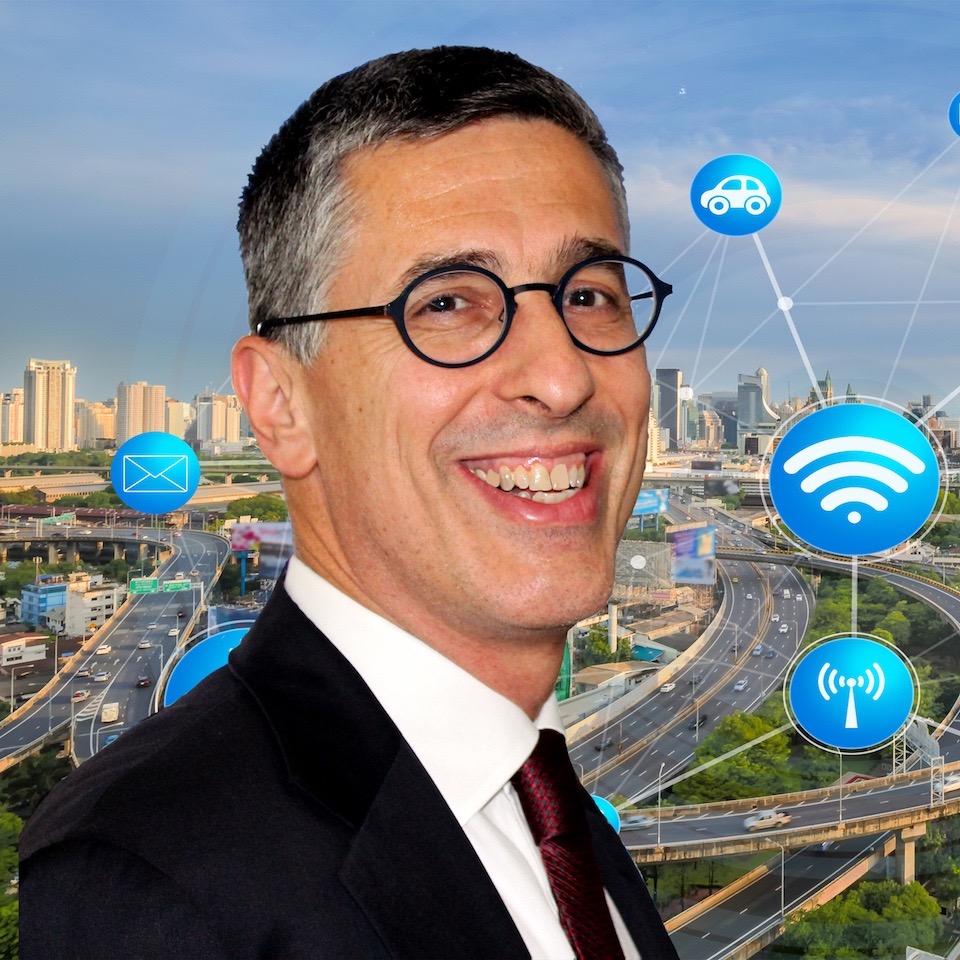An interview at the inSCIght on-line magazine of Hasselt University
How did it all start?
Everything started with my studies in civil and transportation engineering back in Athens, and later on in Paris. There I developed my passion for applied transportation science and the great social as well as economic value it holds to our society. It’s the complex and challenging task of planning, designing, developing and operating an efficient, safe and environmentally friendly transportation system to fit everyone’s needs that have kept me wanting more, year after year.
Why is this field of research so important?
The fatalities and injuries that result out of traffic accidents constitute a very big problem and burden to modern societies all across the globe. Doing research to improve all the components of our road safety systems, going from road infrastructures to driver behavior, is, therefore, a highly rewarding yet challenging mission. In the end, the results of our work are measured in the lives we save on a daily basis.
Is the combination of traffic safety and big data/artificial intelligence the future of your field?
There is no getting around the fact that big data and artificial intelligence have become omnipresent in almost all our activities. However, this provides us with some great new opportunities that were not possible in the past. For example, when it comes to road safety, big data analysis allows us to better identify technical and behavioral mechanisms behind road accidents. Artificial intelligence can help us develop more appropriate policies, programs, and measures in order to avoid road accidents. In addition to this, it also allows us to design more vehicle sub-systems automations that make our vehicles pro-actively safer and re-actively more protective.
You conduct research on a global scale. Do you see a lot of differences?
Unfortunately, to this day, there are still great discrepancies between countries when it comes to road safety performance, both within and outside of Europe. Europe is by far the safest continent. Our best performing countries, like UK, Ireland and the Nordic countries, are over 3x safer than the least performing European countries and up to 10x safer than low income countries. The hard truth is that higher road safety cultures (behavior/infrastructure/vehicles) and fewer road accidents/casualties are still highly associated with economic development. Road safety, in general, is definitively a matter of societal priorities.
How does it feel like getting a Francqui Chair?
It is a very great honor that UHasselt, a global leader when it comes to transportation science, and the Francqui Foundation recognize our high level of scientific work as well as the importance of road safety science. This award has certainly boosted our motivation to continue providing the road safety policy makers and stakeholders with qualitative scientific evidence so we can save more lives together.
What are the key messages that you want to give to the people that come to your lectures?
I have one simple key message: what you put in affects what you get out. By this, I mean that complex systems, like transportation and road safety ones, require a large amount of qualitative scientific effort in order to reach breakthroughs. Due to the high complexity of these systems, we need to combine the expertise of scientists from various fields who should be as multi-disciplinary as possible if we want to create high-end efficient solutions for our transportation problems.
What is the most interesting find you have done in the past years?
The most recent achievement of our amazing research team at the National Technical University of Athens is the development of the SafetyCube Road Safety Decision Support System. It suggests, for the first time ever, extensive lists of road safety measures that match the extensive lists of safety risk factors. This allows decision makers to identify the proper solution for the road safety problems that they are facing when it comes to human behavior and infrastructure and vehicle safety improvements.
What will the future of our traffic system look like?
In the developed world, traffic will continue to become safer as a result of better road safety culture (due to economic and social prosperity), new technological achievements (related to vehicle automation), and an increase in congestion (meaning lower speeds). However, it should be noted that the pace of these improvements depends highly on both our scientific efforts as well as society’s acceptability to change. This makes our role as a scientists in driving change bigger than it ever was.
What would be your #1 tip for people reading this article to improve their road safety?
Two words: STOP SPEEDING. Speeding is the number 1 road killer, something that has been affirmed many times by science. Driving slower results in sufficient reactions times, making fewer errors, a lower accident probability, and significantly less severe accidents.
https://www.instagram.com/inscight.uh/
https://www.facebook.com/inSCIghtUH/

